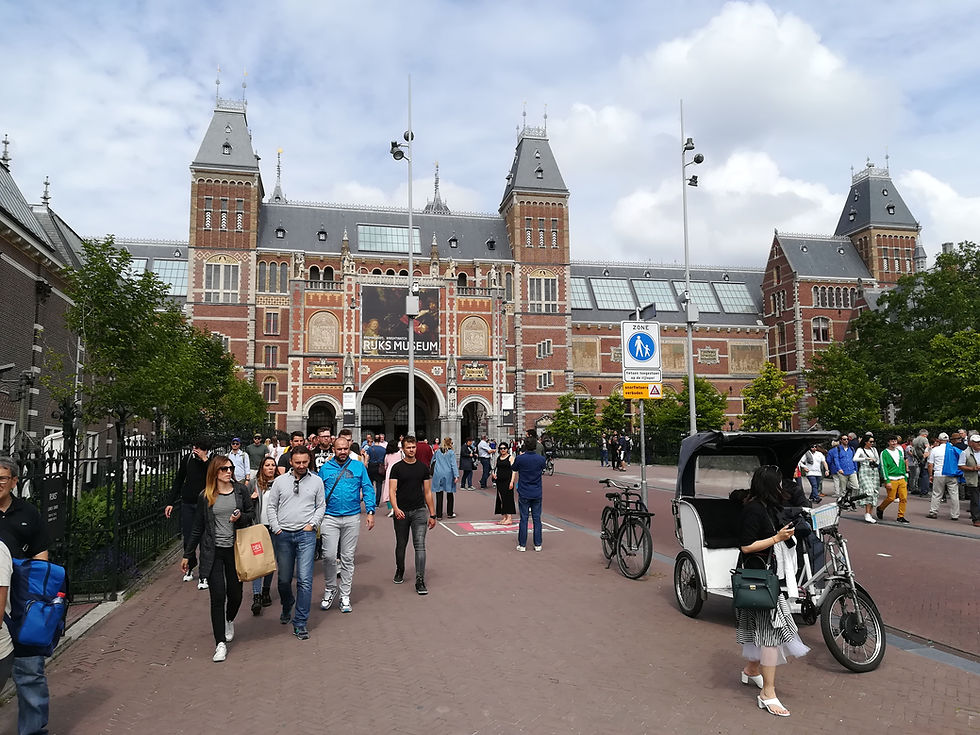Creative tourism 4.0?
- Greg Richards

- Apr 2, 2024
- 3 min read
The latest initiative by Thailand to develop creative tourism has seen Bangkok team up with Airbnb to produce the “first-ever Creative Guide to Bangkok”. This partnership between the Bangkok Metropolitan Administration and Airbnb is a clear sign of what we have termed “Creative Tourism 4.0”: a shift towards ‘relational tourism’ or the co-creation of experiences between locals and visitors, facilitated through peer-to-peer networks. Many creative tourism experiences have been available on Airbnb and TripAdvisor, but now Airbnb is taking a lead role in shaping the development of creative tourism.

There seem to be several drivers behind this development. Airbnb has long cashed in on the expansion of the experience economy with the provision of “Airbnb Experiences”. Many of these are straightforward creative tourism experiences enabling tourists to learn new skills from locals: cooking classes, photography, crafts. Airbnb is also keen to counter criticism that its accommodation operations adversely affect city neighbourhoods by displacing locals and driving up prices. City administrations and tourism marketing organisations are also trying to integrate the needs of tourists and locals through programmes that cater to relational and co-creative tourism.
In Amsterdam, for example, the IAmsterdam tourism marketing campaign was ditched because it was too successful in attracting visitors, causing complaints that tourist needs were being prioritised over those of locals. The famous IAmsterdam sign was hauled away from its prime location in front of the Rijksmuseum as a symbolic gesture of the policy change. Instead, the latest marketing campaign is Renew Your View, which is aimed at both locals and visitors. “The aim is to encourage visitors to see Amsterdam through the eyes of locals and target reducing the number of people who ‘seek sensation and vulgar entertainment’”. This replaced the previous “stay away” campaign aimed at partying visitors (primarily young Brits), which did little to stem the tide of tourists. Instead, the Renew Your View campaign “encourages both visitors and residents to perceive the city in a different light….. allowing visitors to see and experience the city as the locals do.” Following the launch of the promotion aimed at visitors, an initiative called “Amsterdam expands your perspective” aimed at residents will begin in early 2025.

The comparatively top-down approach of Amsterdam contrasts with the way that Creative Tourism 4.0 has developed in Thailand. There, the government-funded organisation DASTA has been working for many years with local communities in rural areas, seeking to develop workshops and creative experiences reminiscent of the original Creative Tourism 1.0 approach initially identified by Richards and Raymond (2000). Over time, however, the DASTA programme has also begun to incorporate urban areas, largely thanks to the UNESCO Creative Cities initiative. Working with creatives in cities such as Sukothai, Nan and Suphanburi, they developed a series of creative experiences for visitors and locals alike. This produced a gradual shift from the basic Creative Tourism 1.0 approach to wider and more complex collaborative models, finally arriving at the Creative Tourism 4.0 stage. Unlike the Amsterdam version, however, in Thailand the emphasis is still very much on community-based tourism, as was clear from the Bangkok launch event entitled ‘A New Era of Bangkok Tourism: Creative, Cultural and Community-led.’

Let’s hope that the community focus remains. This might be difficult in the light of other creative developments in Thai tourism: what OAG has termed “getting creative with visa policies”. Thailand now has mutual no-visa policies with China, India and Taiwan, and is looking to add other countries soon. The effects have been immediate, spurred on by post-Covid ‘revenge travel’. Chinese arrivals grew ten-fold to reach 1.5 million by February 2024. It will be interesting to see how these vast new flows of tourists will be absorbed into ‘community-led’ creative tourism programmes. There is some hope for the creative tourism sector, however: Thailand has also introduced a new Muay Thai visa which allows foreign nationals to remain in Thailand for up to 90 days to receive training in Thailand’s national martial arts.




Comments